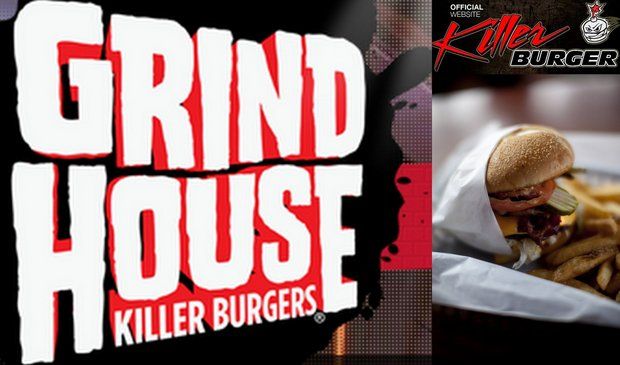Rep. Bob Goodlatte (R-VA) looks fairly likely to bring his Innovation Act to the House floor sometime in the next few weeks. In view of the act’s attempt to crack down on litigious “patent trolls,” it’s no surprise that the trial bar, universities, and other groups that profit from excessive litigation, or from overly restrictive patenting, are sounding the alarm. They claim the act would actually, contrary to its name, be a disaster for innovators, allowing big companies to steal their inventions with no recourse.
What’s funny, though, is that the nightmare scenario they describe — where IP laws are minimal and patents are hard to come by — actually exists for a highly profitable industry where individual innovation still thrives with relative ease.
Rob Pegoraro at Yahoo News hints at its existence as follows:
Imagine you own a restaurant with a good recipe for pie. Now imagine that somebody else who’s never even wielded a whisk for a living sends you a letter alleging that your recipe overlaps his—without specifying how.
You can pay a few thousand bucks now to license the recipe he bought from somebody else, or you can spend vastly more to go to trial—which may mean months in a federal court out in east Texas, where patent trolls are often treated like the legitimate innovators they aren’t.
Saying that you came up with the recipe yourself doesn’t count. You can only try to prove that the alleged overlap doesn’t exist. Got free time? You can try to get the patent invalidated, which may only take five years.[…]
Sound impossible? I admit that my example is unfair in one respect—recipes are essentially impossible to copyright and rarely eligible for patents. Yet despite that lack of intellectual-property protection, restaurants somehow remain a $709 billion business.
Two things should be noted: First, Pegoraro’s example is not at all far-fetched. Securus Technologies has been pulling more or less precisely this stunt for a while, claiming it came up with the patent on video calling from prisons (even though it’s not clear why the qualifier “from prisons” makes this unique, and they don’t explain). The company has used this extremely vague patent to not only troll, but to increase their own market share, since the primary targets of their lawsuits are competitors who arguably provide better service. Fortunately, one such competitor, the Global Tel-link Corporation, decided to fight back.
But more importantly, Pegoraro brings up a valid point — recipes are very difficult to patent, and IP restrictions in the restaurant industry are relatively minimal compared to other areas. Yet celebrity chefs such as Thomas Keller, or Anthony Bourdain, never seem to worry about their recipes being stolen, or about their businesses closing. Furthermore, the secret recipe for KFC’s seasoning has (somehow) remained secret despite many, many imitators.
So what is it about this model that so frightens the “innovators” who stand against a far more moderate variety of patent reform? Well, there are the obvious differences: It’s harder for even a talented cook to reverse engineer a recipe than it is for a talented engineer to reverse engineer to do the same to a device. However, given that chefs like Keller release actual cookbooks with their recipes, which are basically how-to guides on dishes, this would seem to be a marginal problem.
In other words, if recipes were the primary means of making money for the restaurant industry, one would expect them to be jealously guarded, but except in the case of fast food chains like KFC, that clearly isn’t the case. And even in the case of KFC, plenty of people have purported to discover the recipe, yet the restaurant chain hasn’t sued any of them (since this would implicitly validate the recipes), instead claiming that KFC itself is the only place that can reliably get it right.
So the obvious explanations seem to tell only part of the story. However, a more persuasive case might be made that companies like Securus especially fear a restaurant-style patent regime because they fear the fact that it would force them to adhere to a service-focused model. In other words, far from just providing the devices, companies like Securus would have to make sure that the full experience of using them is the best. Securus, at least, conspicuously fails at this, since its prison calling technology has been denounced as overpriced and unreliable by at least one customer. In other words, strict patent rules seem to be less about protecting innovators (who can still follow a Keller or KFC-style model), and more about allowing companies to skimp on customer service or device quality, both things that are essential in the restaurant business.
To some extent, it’s reasonable for the patent system to make allowances for this, since not all innovators will be able to afford a round-the-clock technical support staff at the outset, and might produce devices that are rough around the edges while tinkering in their garage. But this is scarcely an excuse for the current patent system, which, as the case of Securus demonstrates, is badly in need of reform. A complete overhaul might be biting off more than the government can chew. But a few nudges in the direction of acting like restaurants would surely put a better taste in the mouths of customers and innovators.





2 comments
… [Trackback]
[…] Find More to that Topic: thelibertarianrepublic.com/why-do-restaurants-scare-patent-holders/ […]
… [Trackback]
[…] Read More on that Topic: thelibertarianrepublic.com/why-do-restaurants-scare-patent-holders/ […]